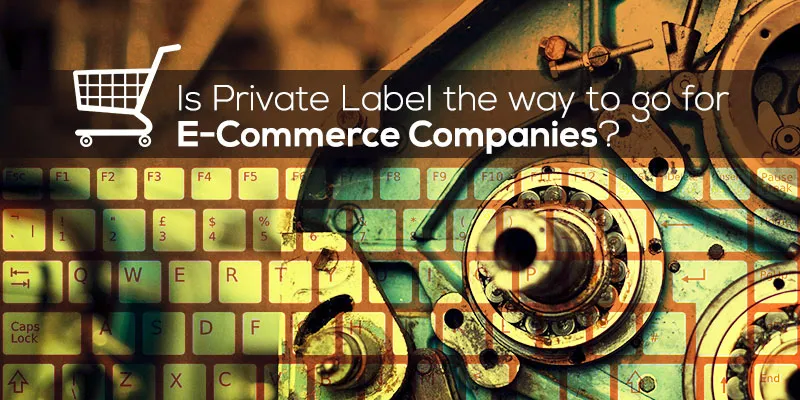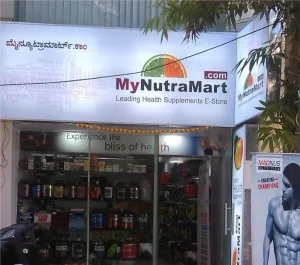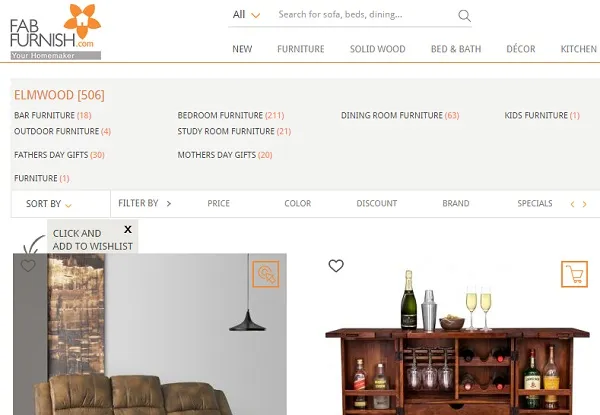Is private label the way to go for e-commerce companies to turn profitable?

BigBasket is one of India’s largest online grocery stores which was founded in 2011 and has since raised more than $60 million in funding. Last year, it clocked revenues of over $30 million. And now, BigBasket has intensified its push on private labels by tying up with 1800 grocery stores.
What is a private label? In business terms, a private label is a “Brand owned not by a manufacturer or producer but by a retailer or supplier who gets its goods made by a contract manufacturer under its own label. Also called private brand.”
BigBasket has three private brands – Fresho, under which it sells fruits, vegetables, meat and bread. Then there are Popular and Royal brands under which it sells staples. BigBasket has these products in various stores (apart from their own website) and now, they have started to push the distribution of these products further. Why? Because of the profit margins. With this move, BigBasket claims that it can quadruple its revenues and move quickly towards profitability.

This is true for small players as well. DogSpot is a case in point. Founded by Rana Atheya as a content site, DogSpot started commerce in 2011 and has since grown at an impressive rate. The company has raised funding from India Quotient, Unilazer and K. Ganesh and is clocking sales revenues of over INR 15 crores currently.
Private labels is a big reason why the company has thrived. “We have a catalogue of about seven thousand products out of which three thousand are active (available) on the site. Currently, we have 400 products in our own branding. We are adding 1000 more products in the next six to nine months in our own brands,” says Rana.
For DogSpot, Pet Supplies is a 30-35% gross margin business. They will have more margins with directly sourced products. “Overall, gross margin improve by 15-20% with private labled products,” says Rana. The same is the case with MyNutraMart, a health supplement e-store that has private labels and offline distribution channels too.
Founded by Himmath Jain and Arvind Jain in 2011, MyNutraMart has also learnt the e-commerce lessons the hard way. Himmath is pretty clear with his comments, he says, “Around 35% of our total sales comes from private labels. We are a profitable e-commerce company because of the private label.”

With a private label, the company does not own manufacturing but works very closely with manufacturers to ensure high quality products. In case of DogSpot, Rana explains, “We define the ingredients, designs and keep a strict check. We have an in-house team of pet experts who research and define the products, which are then made by the manufacturers.”
All these instances point towards an increasing reliance on private labels and companies having to deal with the physical products to remain relevant. There can be only one or two big marketplaces. Andy Dunn, Founder of Bonobos, had put this succinctly in his 2013 essay on e-commerce:
If you’re selling other people’s brands, you are competing not via a local group of competitors but with everyone. In this type of market, you might imagine having one large national winner. You might imagine that winner is ruthless about scale and cost, and is run by a visionary leader with an extreme long-term focus. Such a company might not make real money for a long time — but when it does — it will be incredibly powerful.
It is Amazon in the US and probably in India too. But the jury is still out. There is Flipkart, Snapdeal and Paytm, all of them are strong contenders. For the rest, the game is elsewhere. As Dunn writes: “Proprietary pricing, proprietary selection, proprietary merchandising and proprietary experience are the angles other e-commerce players play on.”
And there are a lot of strong upcoming e-commerce Indian companies that do that. Online furniture is a huge niche when it comes to India, and players like UrbanLadder, FabFurnish and PepperFry are the top three venture-backed firms. UrbanLadder is big on private labels. “A very sharply articulated brand is critical in building private labels,” said Rajiv Shrivastava, COO of Urban Ladder. For FabFurnish, products are sold under several private label brands, including Fab Home, KingSelect, Elmwood, Blossoms and Rocca, in addition to national and international brands.

More and more e-commerce companies are exploring this area. Flipkart-Myntra launched a fashion incubator to work on private labels, Zivame seems to have openings for people to work on private label strategies and many more such initiatives are being floated by venture backed e-commerce companies. This is not a new trend but BigBasket’s step with groceries just gives it more impetus. It also puts a semblance of sanity to e-commerce companies and valuations.
Once these companies get closer to manufacturing and solving logistics issues, the ‘e’ in ‘e-commerce’ just means a distribution channel. Things become more tangible. The new-age companies are going from a virtual to a physical backend while the older companies are building an online front for their physical backend.
As far as the smaller e-commerce companies go, it is high time to think of themselves as a profit-making pipe to the existing platforms and experiment with different models to hit profitability and sustain.







